Jinhyeok Park
Test Time Embedding Normalization for Popularity Bias Mitigation
Sep 01, 2023
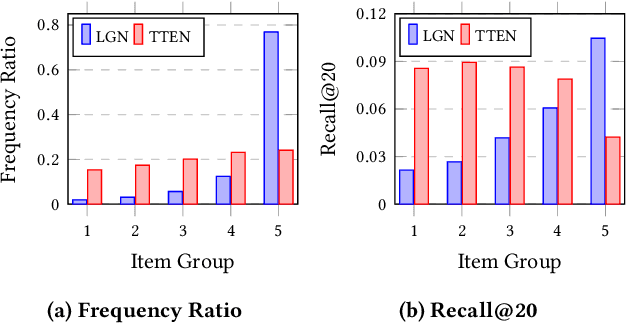
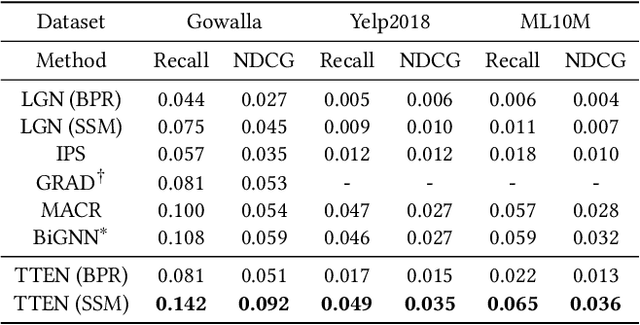

Abstract:Popularity bias is a widespread problem in the field of recommender systems, where popular items tend to dominate recommendation results. In this work, we propose 'Test Time Embedding Normalization' as a simple yet effective strategy for mitigating popularity bias, which surpasses the performance of the previous mitigation approaches by a significant margin. Our approach utilizes the normalized item embedding during the inference stage to control the influence of embedding magnitude, which is highly correlated with item popularity. Through extensive experiments, we show that our method combined with the sampled softmax loss effectively reduces popularity bias compare to previous approaches for bias mitigation. We further investigate the relationship between user and item embeddings and find that the angular similarity between embeddings distinguishes preferable and non-preferable items regardless of their popularity. The analysis explains the mechanism behind the success of our approach in eliminating the impact of popularity bias. Our code is available at https://github.com/ml-postech/TTEN.
Item-based Variational Auto-encoder for Fair Music Recommendation
Oct 24, 2022Abstract:We present our solution for the EvalRS DataChallenge. The EvalRS DataChallenge aims to build a more realistic recommender system considering accuracy, fairness, and diversity in evaluation. Our proposed system is based on an ensemble between an item-based variational auto-encoder (VAE) and a Bayesian personalized ranking matrix factorization (BPRMF). To mitigate the bias in popularity, we use an item-based VAE for each popularity group with an additional fairness regularization. To make a reasonable recommendation even the predictions are inaccurate, we combine the recommended list of BPRMF and that of item-based VAE. Through the experiments, we demonstrate that the item-based VAE with fairness regularization significantly reduces popularity bias compared to the user-based VAE. The ensemble between the item-based VAE and BPRMF makes the top-1 item similar to the ground truth even the predictions are inaccurate. Finally, we propose a `Coefficient Variance based Fairness' as a novel evaluation metric based on our reflections from the extensive experiments.
NAS-VAD: Neural Architecture Search for Voice Activity Detection
Jan 22, 2022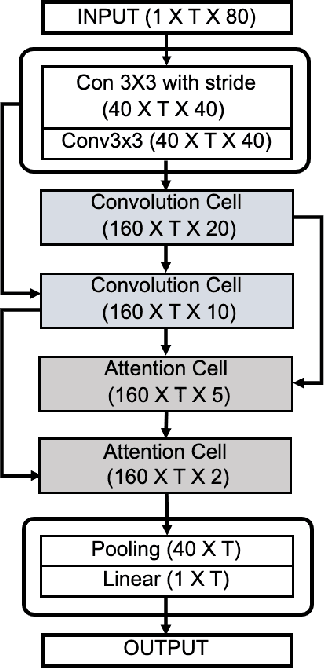
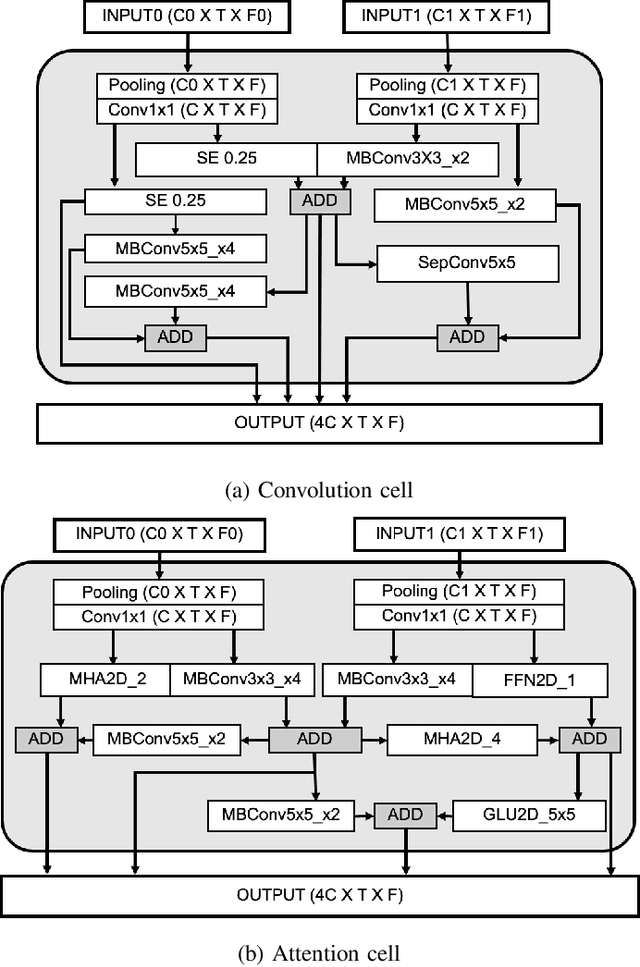
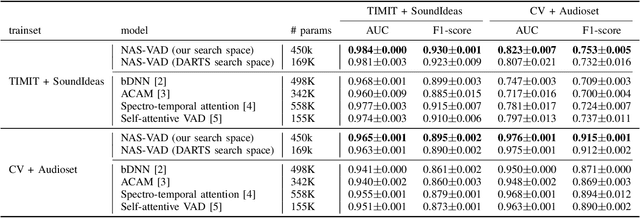
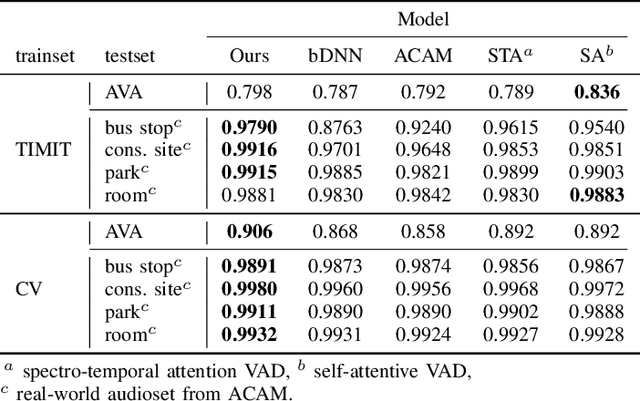
Abstract:The need for automatic design of deep neural networks has led to the emergence of neural architecture search (NAS), which has generated models outperforming manually-designed models. However, most existing NAS frameworks are designed for image processing tasks, and lack structures and operations effective for voice activity detection (VAD) tasks. To discover improved VAD models through automatic design, we present the first work that proposes a NAS framework optimized for the VAD task. The proposed NAS-VAD framework expands the existing search space with the attention mechanism while incorporating the compact macro-architecture with fewer cells. The experimental results show that the models discovered by NAS-VAD outperform the existing manually-designed VAD models in various synthetic and real-world datasets. Our code and models are available at https://github.com/daniel03c1/NAS_VAD.
 Add to Chrome
Add to Chrome Add to Firefox
Add to Firefox Add to Edge
Add to Edge